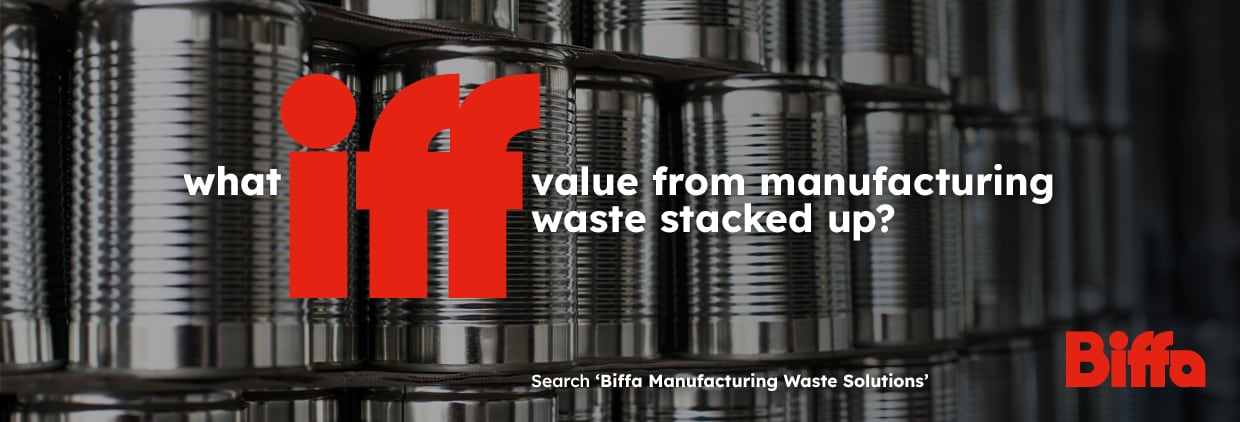In today’s food manufacturing landscape, scaling production is just one piece of the puzzle. The industry is grappling with critical concerns around waste management, resource efficiency and sustainability. Balancing these priorities boosting production, controlling costs and meeting evolving environmental regulations while maintaining long-term profitability is no small feat.
The key challenge? Maintaining efficiency and profitability while driving sustainability.
Let’s delve into the main obstacles food manufacturers face, how these challenges can be transformed into strategic opportunities, and real-world examples of how leading food and drink manufacturers are turning waste into worth.
Tackling overproduction and food waste
Supply chain unpredictability and fluctuating production schedules often lead to overproduction, resulting in substantial food waste. This not only causes significant resource loss but also leads to increased emissions from landfills and escalating disposal costs.
Consider a leading poultry producer who faced significant challenges managing their liquid waste by-products. Their existing process required two tanker trips daily to transport poultry waste for disposal, resulting in high emissions and costs. By developing a groundbreaking de-watering process that separated liquids from solids, they turned waste into a denser, solid material. This innovation reduced transportation by almost 75% from two trips per day to just one every other day, dramatically cutting emissions and costs.
Key outcomes:
- 20.46 tCO2e carbon savings by reducing transportation and emissions.
- Annual savings of £16,000 by cutting transportation frequency and landfill costs.
- Waste diversion to anaerobic digestion (AD) facilities, aligning with sustainability goals.
Opportunity 1
By implementing smarter forecasting tools and waste management practices, food manufacturers can dramatically minimise overproduction, repurpose surplus food, and reduce disposal costs. Leveraging innovative market solutions to enhance waste processes and recyclability, technologies such as anaerobic digestion can transform food waste into energy, generating a revenue stream while significantly reducing environmental impact.
Beyond processing innovations, there’s also growing recognition of the value of surplus redistribution as part of a holistic waste strategy. Company Shop Group works with food manufacturers to redistribute surplus products that may not make it to retail shelves but are perfectly good to use. By turning surplus into a valuable resource, manufacturers reduce waste, cut disposal costs, and contribute to social impact through Company Shop’s member-only stores and Community Shop’s support programs for communities.
Turning packaging waste into a resource
Packaging waste remains a pressing concern, particularly as non-recyclable materials and inefficient recycling systems heighten disposal costs and environmental impact. For instance, one drink manufacturer who was dealing with substantial aluminium faced disposal costs exceeding £1,900 per month, with transportation inefficiencies adding further strain. An optimised recycling strategy was proposed, cutting disposal costs by more than 50%, increasing rebate opportunities, providing a 70% time-saving on processing per bin/pallet, and reducing carbon emissions by eliminating thousands of transportation miles each year.
Opportunity 2
Addressing end-of-life packaging waste by increasing the recyclability of packaging and smarter recycling methods can unlock hidden value, reduce costs, and contribute to a more sustainable operation. By improving waste sorting and processing capabilities, manufacturers can recover valuable materials, reduce environmental impact, and meet growing sustainability expectations.
Navigating regulatory complexity
Sustainable waste management regulations are becoming more stringent, and the cost of non-compliance can be significant. One impactful regulation on the horizon is Extended Producer Responsibility (EPR), which will require UK manufacturers to manage the entire lifecycle of their product packaging, from production through disposal, starting in 2025.
“Brands that adopt refillable or reusable packaging models will be able to reduce their liability and enhance their sustainability credentials”
This shift presents both challenges and opportunities. While the data reporting requirements are more detailed than ever before, it also offers a chance for manufacturers to rethink packaging design, moving toward materials that are easier to recycle and more sustainable in the long term. Brands that adopt refillable or reusable packaging models will be able to reduce their liability and enhance their sustainability credentials.
Opportunity 3
Staying ahead of regulatory requirements isn’t just about avoiding penalties – it’s about building a future-ready business. By adopting proactive waste management strategies and embracing circular economy principles, manufacturers can meet and exceed compliance standards, positioning themselves as industry leaders in sustainability.
Unlocking efficiency through cutting-edge equipment
Outdated equipment can lead to prolonged handling times and increased operational costs, particularly when dealing with waste materials that require crushing or compacting. At one partner site, existing machinery took 20 minutes to process a critical waste stream, creating bottlenecks and using unnecessary resources. By investing in modern equipment capable of completing the task in just six minutes, the site dramatically reduced handling times, optimised resource use, and cut energy consumption.
Opportunity 4
Upgrading waste management equipment can significantly reduce processing times, lower costs, and contribute to sustainability efforts by minimising energy use and improving operational efficiency.
Transforming waste into opportunity
Can waste be the next big opportunity for food manufacturers? Instead of viewing waste as a liability, it can be a valuable resource that drives cost savings, operational improvements, and even new revenue streams. Leading manufacturers are making strides with innovative waste management strategies. By overhauling traditional processes, they’re turning waste into a cost-neutral – or even revenue-generating – asset within their operations.
Camilla Stanley, FM category manager at Britvic, reflects: “Biffa has helped us successfully keep our site cost-neutral for five years running. Their innovative strategies and dedicated support have truly made a difference in our operations and reduced our environmental footprint.”
Ready to turn challenges into strategic wins?
The journey to smarter waste management starts with insight. A comprehensive waste audit can help you identify hidden opportunities to reduce costs, improve efficiency, and enhance sustainability.
To learn more, email manufacturingwastesolutions@biffa.co.uk with ‘MWS Audit Request’ in the subject line, or visit Manufacturing Waste Solutions - Biffa
Turn challenges into opportunities with Biffa – your partner in sustainable manufacturing success.
Written by:
Martin Newman, F&B waste specialist, Biffa Specialist Services
Bio: Martin Newman helps food and beverage manufacturers improve efficiency and unlock value through data-driven innovation and circular solutions.



